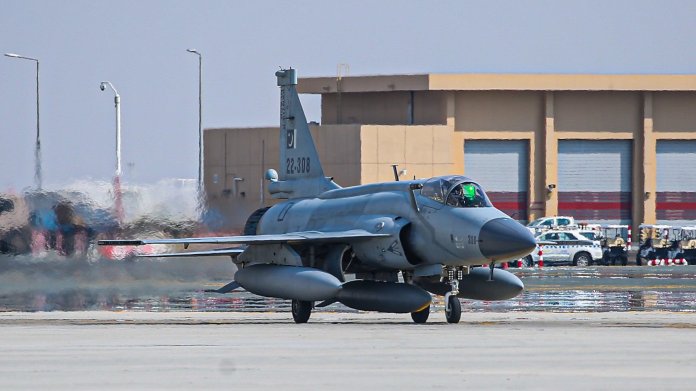The F-35 Joint Strike Fighter program is encountering significant challenges in its Block 4 upgrades, raising concerns that delays could lead to a production shutdown. Lt. Gen. Michael Schmidt, the program's executive officer, highlighted key issues related to hardware design maturity and software integration timelines, emphasizing the critical challenge of development and production concurrency. Block 4 upgrades aim to enhance the F-35's capabilities, allowing it to carry more weapons, improve target recognition, and enhance electronic warfare capabilities. Issues with concurrency, where development and procurement overlap, are complicating the integration process.
Schmidt emphasized that development and production concurrency pose the most critical challenge for Block 4. High-risk concurrency in the schedule could potentially halt aircraft production if development faces further delays. Lockheed Martin stated that some Block 4 capabilities have already been delivered ahead of schedule, including the Automatic Ground Collision Avoidance System and laser-guided GBU-49 bombs. The company did not directly address concerns about a potential production shutdown.
TR-3, a prerequisite for major Block 4 upgrades, is facing software problems, leading to delays. Schmidt mentioned slow production of key parts hindering the completion of new jets. The expected costs and timeline for Block 4 have increased over the years, with 80 capabilities costing $16.5 billion now anticipated to be completed by 2029. Jon Ludwigson from the Government Accountability Office cited evolving requirements and unrealistic expectations as contributing factors.
The program is actively working to eliminate concurrency problems and establish a realistic delivery schedule. A technical baseline review and evaluations by experts from the Navy and Air Force are underway to assess development risks, hardware maturity, and workforce skills. The program needs nine flight sciences aircraft for testing Block 4 upgrades, with resources currently available for three conversions. Congressional authorization is required to convert six more aircraft to meet program requirements.
In conclusion, the F-35 program is navigating challenges in its Block 4 upgrades, emphasizing the need for addressing concurrency issues, setting realistic expectations, and securing additional resources for essential testing. The potential for a production shutdown underscores the significance of overcoming these obstacles to ensure the continued advancement of the F-35 Joint Strike Fighter.
:quality(70)/cloudfront-us-east-1.images.arcpublishing.com/archetype/XM7X2OOCOBEO7GATVGZMZ4Q3WY.jpg)
